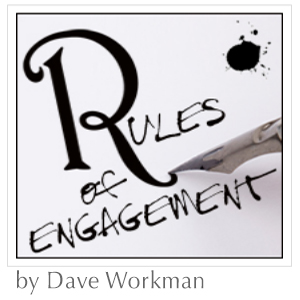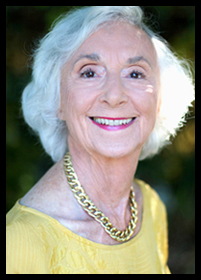.
 A notebook for fiction writers and aspiring novelists. One editor’s perspective.
A notebook for fiction writers and aspiring novelists. One editor’s perspective.
Next post • Previous post • Index
Writing Great Dialogue (Part 3)
Great works of fiction aren’t about
plotting. They’re about people.
Why do we write? Or, more specifically, for what purpose do we write? (Let’s forget about that Pulitzer for a moment.) But what do we hope to convey to our readers? What do we assume will move or excite or enrich an audience? How do we create characters or ideas that might remain in a reader’s thoughts for a month or a year or a lifetime?
The simple answer is, of course, to tell a good story. But let’s dig more deeply. What exactly defines a Great American Novel? (Or a Great Nigerian Novel, for that matter.) As fiction writers, are we attempting to reveal the truth about…what? The truth about truth? About deceit? About pride or prejudice, war or peace? About fate or luck? About zombies or ghosts, aliens or evil step-mothers? About falling in love or coping with death? About fitting in or dropping out? In a real sense, whatever our genre, or topic, whatever our slam-dunk story line, there’s a deeper importance—one that infiltrates all plots and genres and fictive rationale. One that connects author and reader.
Because, for me, the key isn’t about writing “What Happens.” It’s about “What Happens to People.” No matter our story, whatever our genre, whatever our goal, we’re ultimately writing about characters who are important to us. Who feel real to us. But when a writer truly cares about his characters (the good, the bad and the ugly), readers have no choice but to also care deeply for them. And one of the most cogent ways to reveal a character? Through dialogue. Through internal monologue. A paragraph or two of primo dialogue can be worth a chapter or two of banal omniscient narration.
For instance:
.….They strolled in the cool sand for several minutes without speaking, neither of them pushing it, Bobby’s thoughts somewhere on the horizon. Maybe their entire walk destined to silence, but Nikki wanted this conversation—needing it for both their sakes—and she looked at him finally. “Were you in love with her?”
…..“Erica? No. It never—I don’t—it wasn’t ever about love. I’m not even sure she was capable.”
…..“What about you? Have you ever been in love?”
…..“I don’t think so.”
…..“Love’s like a migraine,” she said softly. “You know it when you feel it.”
…..“Maybe just a slight headache, once or twice,” he said with a smile.
…..“It’s a complicated process, Bobby.”
…..“Yeah. Too complicated.”
…..“Oh?”
…..“Too many expectations,” he amended. “Of becoming something you’re not. The spontaneity dies and suddenly being yourself isn’t good enough any more. You feel yourself being molded—crammed into an uncomfortable box. Somewhere you know you don’t belong. Do you know what I mean?” he asked.
…..“Yes,” she said. “I do.”
…..“Maybe somewhere out there—” He shook his head, almost didn’t finish, but then shrugged away the inane incoherence of his own thoughts and said, “—there’s a woman willing to let me be me. Willing to accept the flaws, you know?”
…..They walked for a long moment, her silence this time, before she said, “You know what? You’re like a blind perfectionist, Bobby. You know what you want but I’m not sure you could see it right in front of your face.”
Note that the above dialogue may not be furthering the plot, but it is adding to our understanding of two main characters (development)—and thus, it’s important information to the reader. Allow yourself to truly feel your actors, to expose your characters—warts and all. Remember, in life, there are no 100% heroes and no 100% villains. Even Adolf Hitler painted pretty pictures. Gandhi threw tantrums. So permit your characters to fully inhabit themselves—allow them to speak freely about who they are and what they want, both to you and to your readers. And when you feel moved by what you’ve written, that’s when you know you have a the workings of a great novel. To reit:
Rule #41. Great fiction isn’t about ‘what happens’. It’s about ‘what happens to people.’
The above rule isn’t meant to dissuade anyone from concocting an amazing, consistently dramatic, plot-twisty magnum opus. If you’ve discovered the mother-lode of great plots, and believe you have a logical and rational reason to frontload that information, go for it! However, one word of advice. While you’re plotting your epic masterpiece, don’t allow your characters so sit there like lumps, watching reruns and eating bonbons until the plot comes knocking at their door. Give them substance and give them purpose that excites the reader…even before the plot reveals itself. Once we’ve established our characters—either partially or fully—once we’ve given them flesh and bone, hopes and dreams, courage and fear, imperfections and eccentricities, now we can let loose the proverbial Hounds Of Hell.
Or think of Rule #41 this way. Put an eclectic cast of chatty characters on a luxury liner slowly sinking in the icy Atlantic and you’ve likely got a page turner. Put that same boat in the same predicament—but with nobody aboard—and what do you have? A scholastic essay on buoyancy, I suspect.
One issue I’ve encountered when reading manuscripts concerns character classism: characters—especially protagonists—who are destined to live through the novel (and typically loved by the author) are largely well conceived and fully formed, full of life and joy, witty and urbane—sometimes real as real can be. And then there are the story’s second class citizens, background characters who sometimes seem to be barely breathing, roughly sketched, often dull and lifeless. These are minor characters that I realize (as a reader) are going to die, or else drift off the page sooner or later. Even if these characters have only a modicum of stage time, they need authorial love too. They need your full attention and development. If these characters aren’t fully honed, when they leave the story, or die, readers won’t really care. But a reader should care. If a reader isn’t made to care about a character—either one we’re supposed to love or we’re supposed to hate—there’s probably no reason for that character brought to life in the first place.
So, back to the basics. Let’s return for a moment (see Dialogue Part 2) to our aforementioned sci-fi thriller, The Great Big Giant Meteor. Remember our beleaguered hero, Charlie? Let’s say, early still in Act I, Charlie and his former girlfriend, Andrea, are walking on a moonless night, staring up at the heavens. Maybe that long extinguished spark between them has ignited again. The meteor is still a distant, undiscovered speck in the sky.
Q. How do we fill all those pages before the meteor’s presence is known?
A. With astute, meaningful character development.
For instance, let’s reveal Charlie re-examining all his long, lost feelings, testing those emotions he’d abandoned years ago. Do they oh-so-coincidentally talk about some billion-in-one chance that some as-of-yet undiscovered meteor might hit Earth? Of course not. (That would be telegraphing, and that’s taboo.) Besides, if you’re going to show the collision 100 or 200 pages hence, you certainly don’t want to talk about it now. Why ruin the suspense? Instead, Charlie and Andrea ingratiate themselves to the reader by talking about themselves in a multitude of seemingly incidental, gradually revealing and ultimately intriguing ways. And, as they begin to rediscover each other, the reader begins to discover them too. And no, they’re not talking about favorite laundry detergents either. That’s also taboo. (Because it’s boring.) But what about:
…..“Look at those stars,” Charlie said, staring upward into the cloudless night. “My God, it’s breathtaking. You know, I’ve always assumed only two types of people inhabit this world—those who look up and see irrelevant pinpricks of light, and those who see infinite potential, who ponder the very nature of existence.”
Or what about:
…..“I got married, Charlie,” Andrea said. “After you left Hawai’i, I met a man at Hickam, and we fell in love. It was all rather rushed and impromptu.”
…..Aware of the somber tone in her voice, sensing her sadness, he said, “Didn’t work out, huh?”
…..“It never had the chance,” she said, shaking her head. “He was an astronaut. His name was Paul McPhearson.”
…..Charlie’s mouth formed a surprised oval. “You mean Major McPhearson? The Orion-4 Mission commander?”
…..She nodded. “Paul’s mission died somewhere on the dark side of Jupiter. They never found the spacecraft. He’s still out there, somewhere. Whenever I look up, Charlie, I think a big part of me is looking for him. Silly, I know, but he’s up there, and every night, over and over, I replay those ten thousand potential reasons why he never came home to me. I can’t help myself. I can’t just let it be.”
…..“I’m so sorry,” Charlie said, his voice shaking.
Such personal revelation not only contributes to the reader’s comprehension of our characters, but (in this case) keeps the reader subliminally aware of what’s out there—the meteor, of course—the universe being an infinite, largely unknown and often lethal place. It’s wise to seldom allow our readers to drift too far from the undulating drama that, sooner or later, will show itself.
Or think of character-building this way: Create characters interesting enough—in this case Charlie and Andrea—that even if an impending world-ending meteor doesn’t exist in your story line, your characters are complete and stimulating enough to keep the reader riveted. Keep us glued, even if your book is simple story between two space nerds looking for love.
That’s what great dialogue can provide.
.
Next post • Previous post • Index
.




 by
by 
 Dear Friends,
Dear Friends,